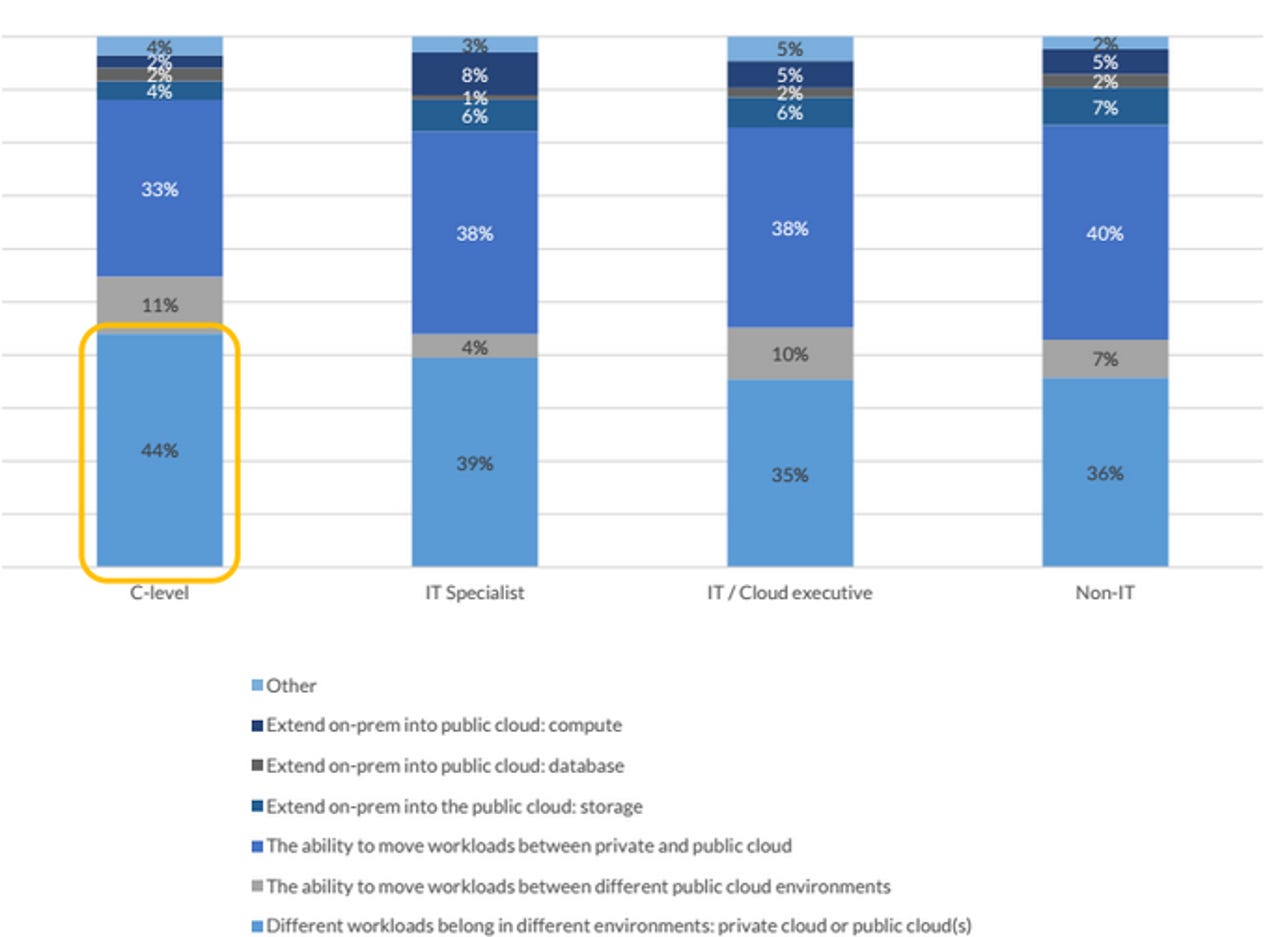What does 'hybrid cloud' mean? It depends on whom you ask

As businesses across industries move their workloads to the cloud, they're often relying on hybrid solutions. Not everyone in the enterprise space, however, has exactly the same idea of what "hybrid cloud" actually means.
A new survey conducted by the cloud infrastructure company Stratoscale finds that C-level executives define hybrid cloud slightly differently than IT specialists. When asked, "What does hybrid cloud mean to you?" the plurality of executives (44 percent) said it means that different workloads belong in different environments. Another 33 percent said it means the ability to move workloads between private and public cloud. By comparison, IT specialists were effectively split between the two answers (39 percent and 38 percent, respectively).
Additionally, the survey suggests that executives experience a shift in their perception of "hybrid cloud" as their company's cloud adoption level increases. In enterprises with adoption levels below 20 percent, hybrid is most often defined as the ability to move workloads between private and public cloud. Yet once cloud adoption exceeds 20 percent, the focus shifts to the concept that different workloads belong in different environments.

The results came from 637 technical professionals that Stratoscale surveyed in June. The respondents ranged from IT specialists to C-level executives and represented enterprises of varying sizes (100 to over 10,000 employees) across several industries.
The survey found that just approximately 15 percent of enterprises haven't started moving to the public cloud. While the vast majority are making the move, most appear to be taking it slowly. More than 65 percent have migrated less than 20 percent of their workloads to a public cloud, the survey found. That figure increased to 70 percent among enterprises with more than 10,000 employees.
The most popular reason for using a private cloud was security (69 percent of executives and 61 percent of IT specialists said so). Additionally, 57 percent of respondents said they had applications and/or data governed by regulations that prevented the use of a public cloud.
"The findings from our survey confirm what we're hearing from our customers--although many have started their journey to the public cloud, the vast majority of companies are still running mission critical workloads and sensitive data in private solutions, primarily for security reasons," Stratoscale CEO Ariel Maislos said in a statement. "It's clear the hybrid cloud model represents the near and long-term future for most enterprises, regardless of size."